The Apple iPad Air 2 Review
by Joshua Ho on November 7, 2014 9:30 AM EST- Posted in
- Tablets
- Apple
- Mobile
- iOS
- ipad Air 2
CPU Performance
Now that we’ve managed to take a good look at the changes between the A8 and A8X, we can get a good idea of what those differences translate to in some real world performance. While we’ve already seen pure CPU performance, such differences can be small when viewed from real applications. To this end, we use a few browser benchmarks and similar benchmarks. I definitely want to caution against comparing SoCs across platforms though, as rendering engines have a significant effect upon the performance of the device.
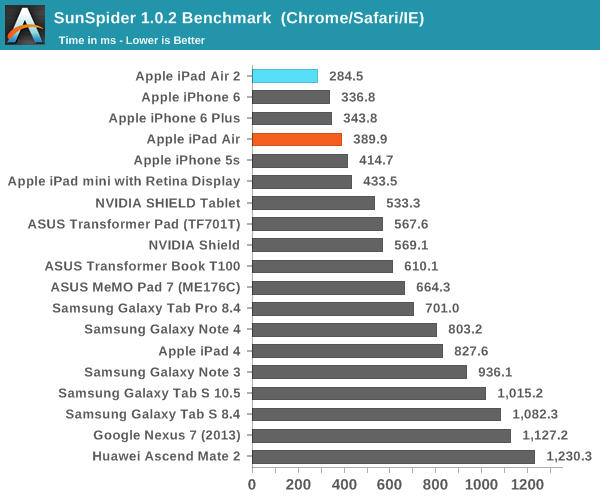
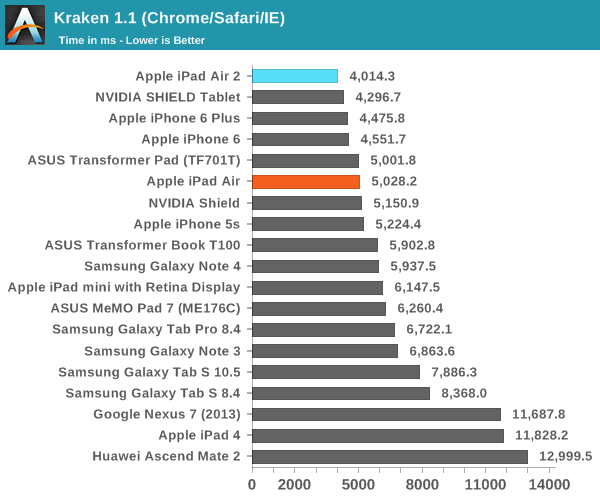
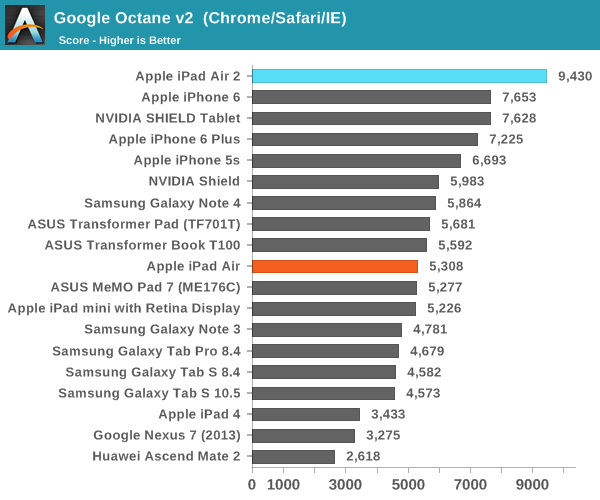
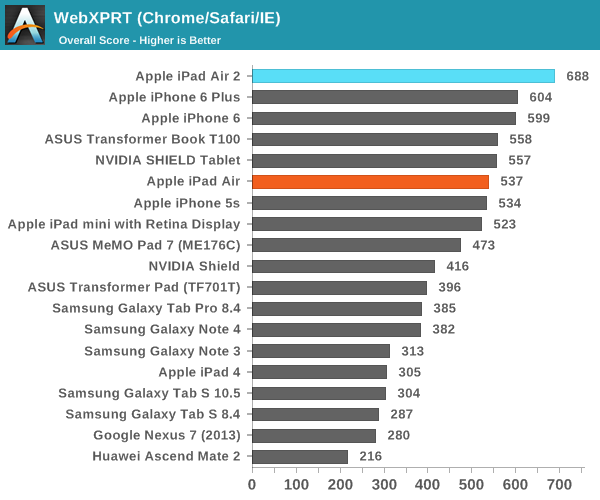
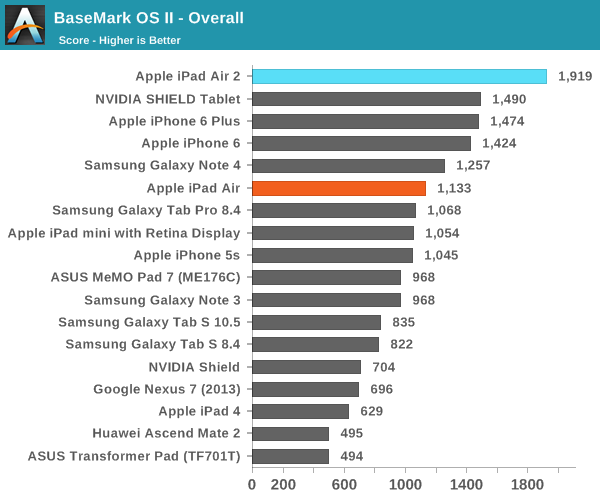
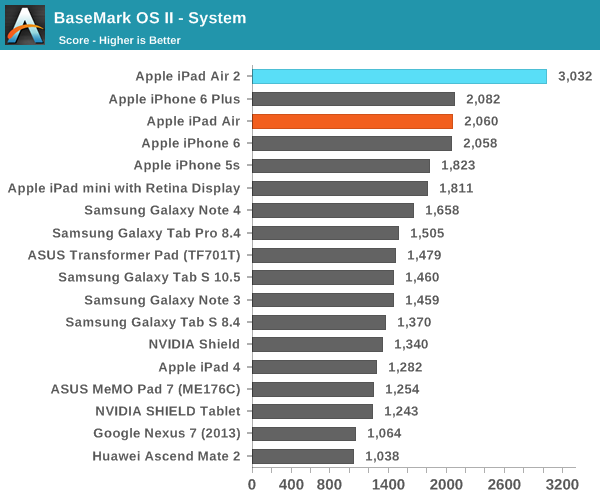
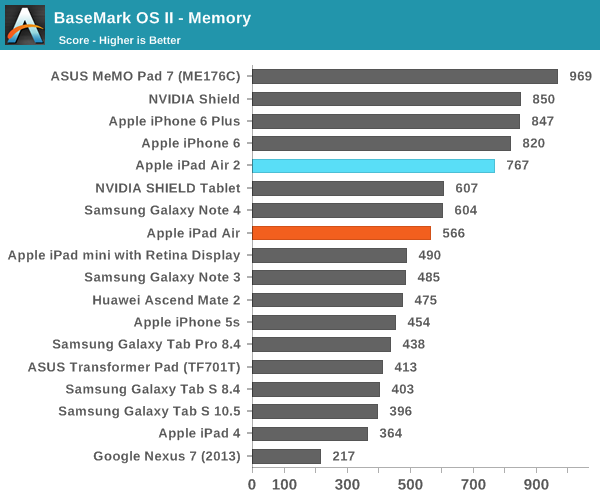
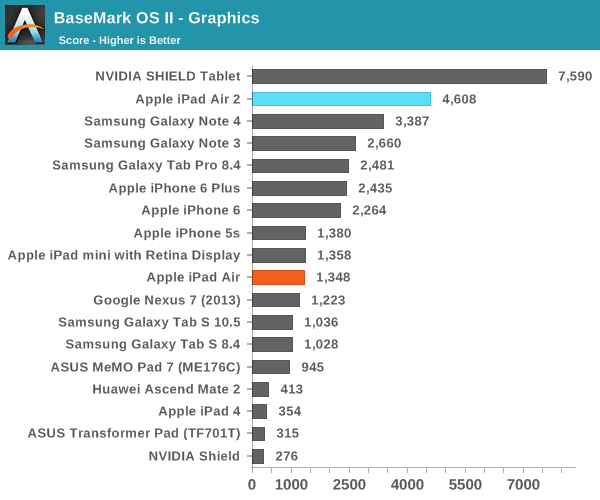
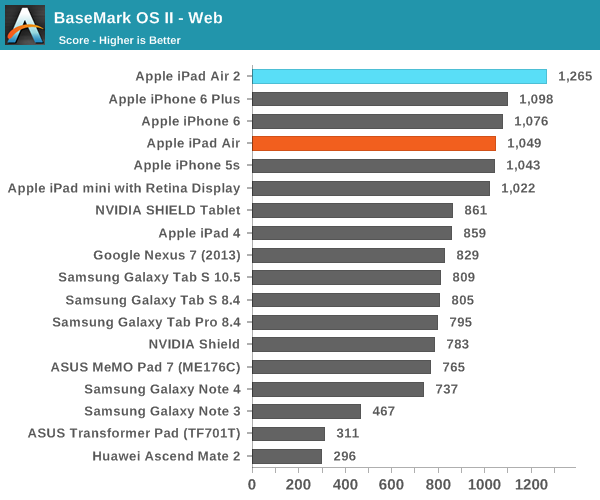
There's really not too much that needs to be said here, as the extra core and minor clock speed bump make for ridiculous amounts of performance. The A8X is class-leading here despite generally having fewer cores and lower clocks than the rest of the competition. However, in comparison to A8 we don't see a massive jump in performance. This seems to suggest that even a third core will invoke diminishing returns in general, although these changes mean that it's enough for the iPad Air 2 to be one of the fastest ARM-based devices on the market. One can see an odd regression in the Basemark OS II storage test, but this is likely to be production variances in NAND quality rather than anything notable.










226 Comments
View All Comments
nicolapeluchetti - Sunday, November 9, 2014 - link
I have a Kontrol S2 to play sound obviously :Dakdj - Thursday, November 27, 2014 - link
Yes and plenty more options coming as they've released for 2015 the protocolThe camera connect kit is a Lightining to USB standard 6" $20 peripheral. Good to go
akdj - Monday, November 10, 2014 - link
Plenty of options exist both with 30pin-out and lightning to send digital audio to an external DAC. Most systems are employing other storage methods (lossless, FLAC, WAV, et al) including thumb drives, externals and wireless transfers.It's changed (DJ'ing) a tremendous amount in a ¼ decade ;)
It's crazy to me, even with USB2, zero latency mixing digital music with an external DAC talking to an analog board with an analog output ...all in 'real time' and literally ZERO latency
It's awesome
darwinosx - Friday, November 7, 2014 - link
Hah, good luck with that. Seriously. You'll need it.sprockkets - Saturday, November 8, 2014 - link
Seriously, go fuck yourself appletard.KoolAidMan1 - Tuesday, November 11, 2014 - link
Look who's madFlunk - Friday, November 7, 2014 - link
That's because you're a technical person. Android aims these things at people who want the simplest interface, less options and a holistic management approach. Android is much more flexible and that's why almost all technical people prefer Android.I've got a Nexus 10 and a Nexus 5.
Mayuyu - Friday, November 7, 2014 - link
After I problem solve all day at work, I just want to unwind and use my tablet without messing with it.Midwayman - Friday, November 7, 2014 - link
I'm with you here. I really like the flexibility of android, but I get tired of always having to do something to make it work. I feel like any android device I get is about 90% finished and Its up to me to hit XDA and do the rest of the work.blacks329 - Saturday, November 8, 2014 - link
Both of these statements sound very reminiscent of my own sentiments I had towards Windows back in the day.Android is fantastically flexible, but at the end of the day, I don't want to think about dealing with it after work.